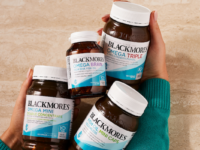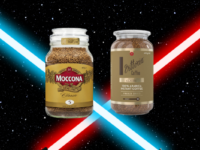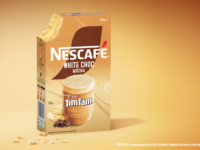
The cost of food waste to the Australian economy is estimated to be around $20 billion each year, according to the Department of the Environment. And while households are responsible for the bulk of food waste, the latest government research shows that the commercial and industrial sector dumps 2.2 million tonnes of food waste annually.
Valiant efforts are being made to reduce food waste across the supply chain, with big brands donating surplus food to food relief charities, for example, but often the by-products of food manufacturing pose an even bigger problem, as Dean Turner,CEO of enrich360®, explains.
“For any company making a food product that has any cast-off parts, whether that’s cheese waste or the leftover pineapple water from pizza production, the amount of wastage in these places is massive,” Turner said.
Turner works with businesses of all sizes that produce food and, in effect, generate food waste, whether that’s food manufacturers, restaurants, shopping centre food courts or wineries.
Using a dehydrating machine created by enrich360® these businesses can shrink a batch of food waste by 80-93 per cent.
Produce, coffee grounds, bread, pasta, rice, meat, chicken, fish and even some compostable products can be fed into the dehydrator, which churns and heats the waste food.
The end-product is a pathogen-free biomass that is collected by Turner’s team and used as a fertiliser on Australian farms.
“Once it has gone through the machine, it is obviously reduced in size, it doesn’t smell any longer at all. So, we can collect a lot less, which means there’s less truck movements,” he said.
Turner said the reduction in general waste can help businesses save money on ever-rising landfill costs and is a big win for the environment.
“There’s the cost benefit, and then there’s obviously a massive environmental benefit. If you can reduce the amount of food waste going into landfill, that reduces methane gas which is 25 times more potent than CO2,” Turner said.
By removing the excess water from the food, the process also generates steam which is condensed into green standard recycled water.
“Instead of paying your waste collector to take food wastewater to landfill, you’re actually taking the water out with the potential of that going straight into the drain or being captured for reuse.”
The machines vary in size from one that can process 22-33 kilos per day to one that can manage 1.1 tonne, ideal for large food manufacturers.
With consumers showing increased interest in sustainability practices in business, the system can also have a positive marketing impact. Enrich360® has created a certification program, approved by the ACCC, that can be applied anywhere in the food chain.
“Once the business is up and running with the program, we come in and audit them, and then issue them with the certification. We have promotional material to support that certification so that they can communicate to the customers that they’re doing the right thing for the environment,” Turner said.
enrich360® is based in Melbourne and operates in New South Wales, Queensland, Victoria and Tasmania. To find out more click here.













